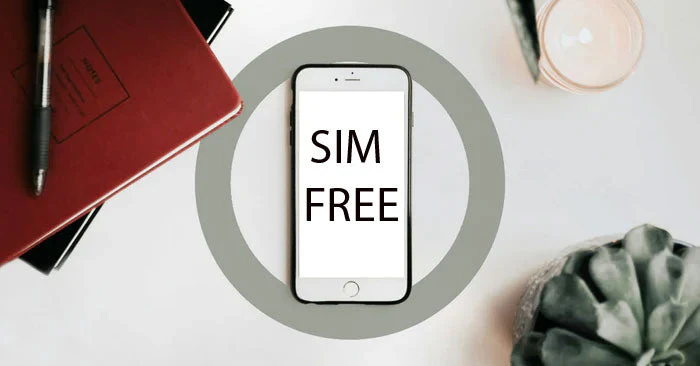Table of Contents
Understanding SIM-Free iPhones in Today’s Mobile Market
As mobile technology evolves, consumers are increasingly seeking flexibility, independence, and cost-effectiveness when purchasing smartphones. Among the growing trends is the demand for SIM-free devices—particularly iPhones. Whether you’re a frequent traveler, cost-conscious user, or simply prefer control over your mobile experience, a SIM-free iPhone can be an ideal choice.
In this guide, we explore what is SIM free iPhone, outlining its key advantages, differences from carrier-locked models, and important factors to consider before making a purchase.
What is a SIM-Free iPhone?
A SIM-free iPhone is a device that is sold without a SIM card and is not tied to any specific mobile carrier. This means the phone comes fully unlocked, allowing users to insert any compatible SIM card from their preferred network provider.
Unlike carrier-locked iPhones—which are typically sold through mobile operators under contract or financing agreements—SIM-free iPhones are usually purchased outright. This offers users greater flexibility in choosing mobile plans, switching carriers, and using the device internationally without restrictions.
Key Benefits of Choosing a SIM-Free iPhone
Opting for a SIM-free iPhone can offer several long-term advantages, particularly for users who prioritize independence and flexibility.
1. Freedom to Choose Your Carrier
One of the primary benefits of a SIM-free iPhone is the freedom to use it with any carrier. Whether you’re switching networks for better coverage or looking for a more affordable plan, a SIM-free device provides the flexibility to move between providers without compatibility concerns.
2. No Binding Contracts
SIM-free iPhones are not tied to long-term contracts. This means you are not locked into a multi-year agreement and can explore competitive pay-as-you-go or prepaid options that may offer better value over time.
3. Ideal for International Travel
For frequent travelers, SIM-free iPhones are a practical solution. Simply insert a local SIM card when abroad to enjoy lower call, text, and data rates—avoiding the often high costs associated with international roaming on carrier-locked devices.
4. Better Resale Value
Unlocked phones, including SIM-free iPhones, generally have a higher resale value. Their compatibility with multiple networks makes them more appealing to a wider range of buyers, whether locally or internationally.
5. Direct Software Updates
Devices purchased directly from Apple are typically not subjected to carrier-specific testing delays. As a result, SIM-free iPhones often receive iOS updates faster and more reliably than their carrier-locked counterparts.
SIM-Free vs. Carrier-Locked iPhones: What Sets Them Apart?
Understanding the differences between SIM-free and carrier-locked iPhones is essential when deciding which option best suits your needs.
| Feature | SIM-Free iPhone | Carrier-Locked iPhone |
| Carrier Restriction | None—works with any compatible network | Locked to a single carrier |
| Contract Requirement | None—device purchased outright | Often involves 12-36 month contract |
| Network Switching | Easy and unrestricted | Limited until device is unlocked |
| Travel Convenience | Ideal for using local SIMs abroad | Roaming charges apply |
| Software Updates | Direct updates from Apple | May be delayed by carrier approval |
Important Considerations Before Buying a SIM-Free iPhone
While a SIM-free iPhone offers numerous benefits, there are a few critical points to consider to ensure a smooth purchase and usage experience.
1. Purchase from Reputable Sources
To avoid scams or receiving refurbished devices labeled as new, always buy SIM-free iPhones from trusted sources—such as Apple’s official website, Apple Stores, or certified resellers. Retailers like Amazon (Apple-authorized) or Best Buy also offer verified SIM-free models.
2. Upfront Cost
Because SIM-free devices are sold without financing or carrier subsidies, they require full payment at the time of purchase. While this can be a significant initial expense, it may save you money over time through lower monthly service costs and no hidden fees.
3. Carrier Compatibility
Although SIM-free iPhones are unlocked, it is still essential to verify that your desired carrier supports the device’s network bands. This is particularly important in regions that use differing cellular technologies such as GSM or CDMA.
4. eSIM and Dual SIM Features
Most recent iPhone models (from iPhone XS onward) support eSIM functionality in addition to a physical SIM slot. This dual SIM capability allows you to maintain two separate phone numbers or plans on a single device—ideal for balancing personal and business use or managing domestic and international plans.
5. Warranty and AppleCare+
SIM-free iPhones are eligible for Apple’s standard one-year warranty and can be covered by AppleCare+ for extended protection. This is a key benefit for users who value device security and peace of mind.
Conclusion: Is a SIM-Free iPhone the Right Choice for You?
If flexibility, freedom from contracts, and full control over your mobile experience are priorities for you, then a SIM-free iPhone is a smart investment. By understanding what is sim free iPhone and weighing its benefits, you position yourself to make a more informed and cost-effective decision.
However, if budget constraints make monthly payments more practical—or if you’re content staying with one network provider—then a carrier-locked iPhone may still be a viable option.
Ultimately, a SIM-free iPhone offers long-term value, especially for users who seek control, global usability, and resale potential. It’s an excellent choice for modern mobile users who demand both performance and freedom.








